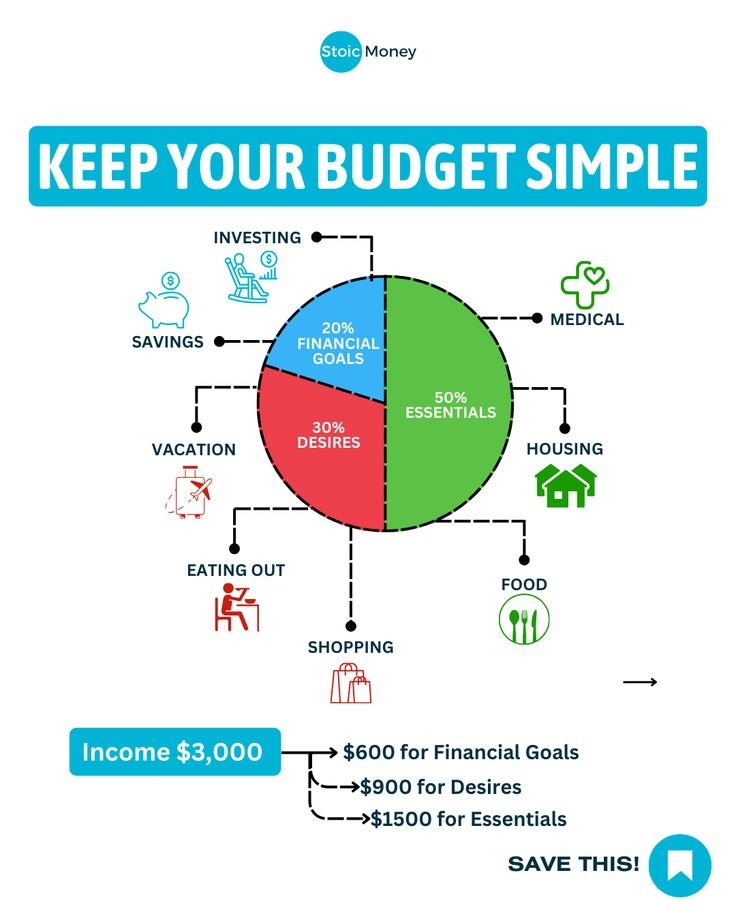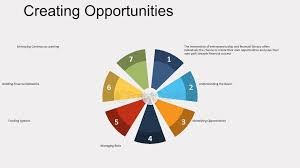Building wealth from scratch is a journey that requires discipline, strategic planning, and a commitment to long-term financial growth. Whether you’re starting from ground zero or looking to refine your financial strategies, IdeasUnfold provides actionable and proven tips to help you accumulate wealth. This guide covers essential steps and strategies to set yourself on a path to financial independence, focusing on practical advice that aligns with today’s financial landscape.
1. Develop a Solid Financial Foundation
Before you can begin building wealth, it’s crucial to establish a strong financial foundation. This means getting clear on your current financial situation, including your income, expenses, debts, and savings. Start by creating a detailed budget that outlines your monthly cash flow. This will give you a clear picture of where your money is going and help you identify areas where you can cut back to save more.
An important aspect of this step is building an emergency fund. Aim for at least 3-6 months’ worth of living expenses set aside in a liquid, low-risk account. This will act as a safety net, allowing you to weather unforeseen financial setbacks without derailing your wealth-building efforts.
Additionally, focus on managing your debts effectively. Pay off high-interest debts like credit cards first, as they can quickly snowball and undermine your ability to save and invest. Consider consolidating or refinancing loans to secure lower interest rates, freeing up more cash for investing.
2. Establish Clear Financial Goals
One of the most important aspects of building wealth is having a clear vision of what you want to achieve. Setting specific, measurable, achievable, relevant, and time-bound (SMART) financial goals will keep you focused and motivated.
Start with short-term goals like saving for a vacation or paying off credit card debt. As you achieve these, move on to medium-term goals such as building a retirement fund or buying a home. Long-term goals should include financial independence or retiring early. Breaking down your larger financial ambitions into smaller, actionable steps helps you maintain focus and track your progress over time.
Regularly revisiting and adjusting your goals based on your evolving financial situation ensures that you remain on track, even as life circumstances change.
3. Start Saving and Invest Early
The sooner you start saving and investing, the more time your money has to grow. The power of compound interest is one of the most effective wealth-building tools available, but it requires time to work its magic. Begin by setting aside a portion of your income each month for saving and investing. Even if you can only save a small amount at first, consistency is key.
Invest in tax-advantaged accounts like a 401(k) or IRA to grow your wealth. These retirement accounts offer the benefit of tax-deferred growth, which allows your investments to compound more quickly. For younger investors, focusing on stocks, index funds, and ETFs can provide higher returns over time, although they come with higher volatility. Always diversify your investment portfolio to spread risk and ensure long-term stability.
In addition to traditional investment vehicles, consider alternative investments such as real estate, cryptocurrencies, or peer-to-peer lending platforms. These assets can offer higher returns, but they also come with added risk, so be sure to do thorough research before committing.
4. Live Below Your Means
One of the most effective ways to build wealth is to live below your means. Avoid lifestyle inflation, which occurs when your expenses increase as your income rises. Instead, aim to save and invest a larger portion of any income increase. The discipline to live frugally in the short term will pay off in the long run, allowing you to accumulate wealth faster.
This doesn’t mean living an austere life, but rather making intentional spending decisions. Focus on what truly adds value to your life and eliminate unnecessary expenses. For instance, consider downsizing housing or using public transportation to reduce living costs. Small adjustments, when made consistently, can add up over time, significantly boosting your ability to save and invest.
5. Continuously Educate Yourself About Money Management
Financial literacy is key to building and maintaining wealth. Continuously educating yourself about personal finance, investing, and wealth management will empower you to make informed decisions that accelerate your financial growth.
There are many resources available today, from books and podcasts to online courses and financial blogs, which provide valuable insights into managing money, building investments, and planning for retirement. Stay informed about market trends, new investment opportunities, and financial strategies that can benefit your wealth-building plan.
Additionally, consider consulting with a financial advisor or planner, especially if you’re just getting started. A professional can help you develop a tailored financial strategy based on your specific situation, goals, and risk tolerance.
6. Focus on Increasing Your Income Streams
Building wealth isn’t just about cutting costs and saving; it’s also about increasing your income. Look for opportunities to boost your earning potential, whether through your primary job, side hustles, or entrepreneurial ventures.
Consider negotiating your salary or pursuing new career opportunities that offer higher pay. If you have specialized skills or expertise, leverage them to start a consulting business, freelance, or create online courses that generate additional income.
Side hustles like driving for a ride-sharing service, selling handmade goods online, or offering tutoring services can also contribute significantly to your income. As your side income grows, you can reinvest it into your savings and investments, accelerating your wealth-building process.
7. Take Advantage of Tax Optimization Strategies
Tax efficiency is a critical component of wealth building. In 2025, there are numerous ways to legally reduce your tax liability and maximize your wealth. Contributing to tax-deferred retirement accounts like a 401(k) or traditional IRA can lower your taxable income, leaving you with more to invest.
Consider tax-efficient investments such as municipal bonds, which provide tax-free income at the federal level, or investing in ETFs and index funds that typically have lower capital gains taxes due to their passive management style.
For real estate investors, utilizing tax benefits such as depreciation can significantly reduce taxable income, increasing the overall profitability of property investments. If you are self-employed, tax-deductible business expenses can also lower your tax burden, freeing up more capital to reinvest in your wealth-building efforts.
8. Stay Patient and Consistent
Building wealth from scratch is not a get-rich-quick endeavor. It requires patience, discipline, and consistency. While there will inevitably be periods of market volatility, economic uncertainty, or personal financial setbacks, staying focused on your long-term goals is essential.
Trust in your financial strategy and remain consistent with your savings and investments. Over time, your wealth will compound, and the fruits of your efforts will become increasingly evident. Avoid the temptation to make drastic moves based on short-term market fluctuations or fads. Instead, focus on the long-term growth of your assets.
Conclusion: The Path to Wealth Begins with Smart Decisions
Building wealth from scratch in 2025 requires a combination of smart financial habits, discipline, and a willingness to learn and adapt. By establishing a solid financial foundation, living below your means, investing early, and continuously educating yourself, you can take control of your financial future. The key to success is consistency—staying patient and focused on your long-term goals while making informed decisions to grow your wealth. By following these proven tips, you’ll be well on your way to financial independence and security.




